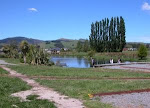The events of last month have really highlighted the amount of racism that goes on in our communities around New Zealand. It's up to all of us to stand up to racism or any kind of “ism.” This is where people use ignorant stereotypes to make slurs against another human being – sexism is another example and comments made on the basis of religion are another example). These slurs more often happen when we can see differences between ourselves and others – perhaps in the way they dress, look or the colour of their skin. If we do not make a stand against this kind of abuse then that makes people think it's alright. This is why we need everyone to challenge it when it happens.
This article is adapted from https://www.thatsus.co.nz where you can find a range of resources to help you deal with racism (or other “isms” for that matter) when you come across it.
Before anything else, we are human beings and as human beings, our differences are much smaller than the things that we have in common. We all, we all experience joy love and sadness, and we all suffer sickness and old age and actually mostly we value very similar things (albeit that we might show that in slightly different ways). As human beings, we are also often driven by fear – something that often goes unacknowledged and which can shape our everyday encounters with others. Racist behaviour is often driven by fear particularly when we fail to recognise these similarities.
Racist or discriminatory comments or actions can occur at any time — it's good to be prepared before the situation happens so you know to deal with it. Of course, it's not always easy standing up for what you think is right. It's takes courage, but here are some tips that might help you.
What you decide to say or do will depend on the situation. You should never put yourself at risk but there are lots of actions you can take that don’t involve confrontation. Even a simple gesture can be powerful and shows the person on the receiving end of the behaviour that they’re not alone.
If you see someone abusing another person, there are three actions that can help;
1. Support the victim,
Try to support the person being attacked. It might just be as simple as going up to them and asking them if they are OK. Ignore the attacker. Make sure the victim knows she or he is not alone. Talk to them, sit with them or walk with them to provide support. They’ll be feeling a range of emotions – fear, anger, embarrassment – make them feel better by knowing they’re not alone. Don’t be a bystander.
2. Record what is happening
If you can, record the attack on a phone.
3. Report the incident
Finally, report the attack to authorities. Call the Police. Alert the Bus Driver or talk to someone in charge. Don’t just let it slide.
By doing these three actions we can make sure anyone who attacks someone else is held to account and the victim doesn't feel alone.


No comments:
Post a Comment